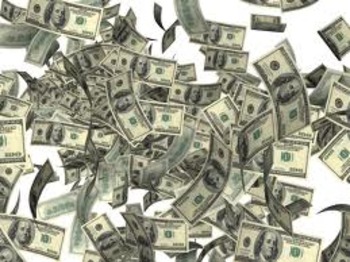Eighty-two per cent of the wealth generated last year went to the richest one per cent of the global population, while the 3.7 billion people who make up the poorest half of the world saw no increase in their wealth, says a new Oxfam report.
The report was launched on Monday as political and business elites gather for the World Economic Forum in Davos, Switzerland.
The report, titled “Reward Work, Not Wealth”, revealed how the global economy enabled a wealthy elite to accumulate vast fortunes while hundreds of millions of people are struggling to survive on poverty pay.
“Billionaire wealth has risen by an annual average of 13 per cent since 2010; six times faster than the wages of ordinary workers, which have risen by a yearly average of just two per cent.
“The number of billionaires rose at an unprecedented rate of one every two days between March 2016 and March 2017.
“It takes just four days for a CEO from one of the top five global fashion brands to earn what a Bangladeshi garment worker will earn in her lifetime.
” In the US, it takes slightly over one working day for a CEO to earn what an ordinary worker makes in a year.
“It would cost 2.2 billion dollars a year to increase the wages of all 2.5 million Vietnamese garment workers to a living wage.
“This is about a third of the amount paid out to wealthy shareholders by the top five companies in the garment sector in 2016,” the report stated.
The Oxfam report also outlined the key factors driving up rewards for shareholders and corporate bosses at the expense of workers’ pay and conditions.
According to the report, this include the erosion of workers’ rights, the excessive influence of big business over government policy-making and the relentless corporate drive to minimise costs in order to maximise returns to shareholders.
Executive Director of Oxfam International, Mrs Winnie Byanyima, said that the billionaire boom was not a sign of a thriving economy but a symptom of a failing economic system.
“The people who make our clothes, assemble our phones and grow our food are being exploited to ensure a steady supply of cheap goods, and swell the profits of corporations and billionaire investors.
“Women workers often find themselves off at the bottom of the heap. Across the world, women consistently earn less than men and are usually in the lowest paid and least secure forms of work. By comparison, nine out of 10 billionaires are men.
“Oxfam is calling for governments to ensure our economies work for everyone and not just the fortunate few.
“They should limit returns to shareholders and top executives, and ensure all workers receive a minimum living wage that would enable them to have a decent quality of life.
” For example, in Nigeria, the legal minimum wage would need to be tripled to ensure decent living standards,” she said.
Byanyima also urged government to help eliminate the gender pay gap and protect the rights of women workers.
She also urged governments to ensure that the wealthy pay their fair share of tax through higher taxes and a crackdown on tax avoidance and increase spending on public services such as healthcare and education.
Oxfam estimates that a global tax of 1.5 per cent on billionaires’ wealth could pay for every child to go to school.
Oxfam’s calculations are based on global wealth distribution data provided by the Credit Suisse Global Wealth Data book published in November 2017.
The wealth of billionaires was calculated using Forbes’ billionaires list last published in March 2017.
RIWI and YouGov conducted the online survey for Oxfam in 10 countries: India, Nigeria, United States, United Kingdom, Mexico, South Africa, Spain and Morocco. (NAN)

